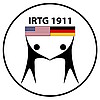A2 (2019 - 2022) - Perinatal dysbiosis and the development of severe allergic asthma
Recent results from human and animal studies demonstrate that the composition of the microbiome influences the risk and severity of allergic asthma. In the first weeks of life, the body is colonized with microbiota which interact with and shape the developing immune system. Epidemiologic data indicate that early life events that support colonization with a diverse array of commensal bacteria (vaginal delivery, breast milk feeding, older siblings, pets in the home, consumption of unpasteurized milk) protect from allergic asthma. In contrast, early life events that favor a microbial dysbiosis (caesarian section, exposure to antibiotics) are associated with an increased risk of allergic asthma development and severity later in life. At the moment, it is not known how dysbiosis changes the function of the immune system. Insight into mechanisms that revert microbiota changes or mechanistic insight into changes of the immune system might lead to new therapeutic options to mitigate the effects of perinatal dysbiosis and aid in the treatment of asthma.
Aims:
1. Define the critical window for dysbiosis to increase AHR and IL17 producing cells
2. Define the role of IL17 in increased AHR
3. Examine if treatment with probiotics or microbiota from the lung microbiome will revert dysbiosis as well as AHR
Principal Investigators


Students




